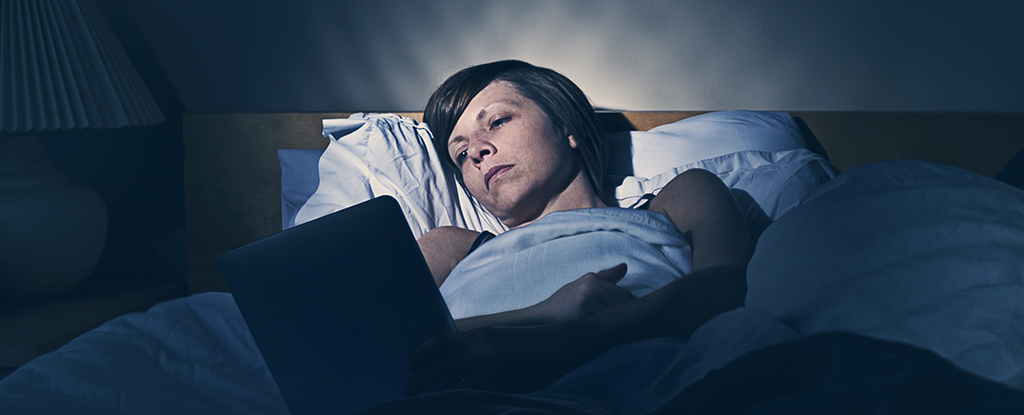

Insomnia is a sleep disorder that affects a significant portion of the population. Although estimates vary from 10-60 percent, it is clear that insomnia is linked to several long-term health issues such as depression and cardiovascular disease. A recent study has found that insomniacs may inadvertently worsen their condition by engaging in clock-watching or time-monitoring behavior (TMB). This behavior can increase frustration and lead to higher use of sleeping aids, creating a negative feedback loop that exacerbates insomnia and associated annoyances.
Researchers from Indiana University Bloomington looked at sleep-specific data from 4,886 patients who completed a questionnaire at a sleep medical center in Arizona. The severity of insomnia, the time spent monitoring behavior while trying to sleep, and the use of both over-the-counter and prescription sleep medications were analyzed. The data showed that TMB worsens insomnia and its associated annoyances, leading to more clock-watching and further aggravating the condition. People who engage in TMB are concerned that they are not getting enough sleep, which leads to estimating how long it will take them to fall back asleep and when they have to be up. This activity is not helpful in facilitating the ability to fall asleep, and the more stressed out people are, the harder it is for them to fall asleep.
The researchers used mediation analyses to statistically compare variables against each other to find a relationship. Insomnia was the cause, sleep medication use was the result, and clock watching was the suspected ‘mediator’ in the three variables. A strong connection was found between all three factors in the data. Those with both insomnia and associated psychiatric conditions reported more clock-watching and greater use of sleep aids. The researchers discovered that TMB mainly has an effect on sleep medication use because it exacerbates insomnia symptoms.
The study also found that frustration with not being able to sleep is just as important as TMB when it comes to dealing with insomnia. The researchers recommended specific therapies such as cognitive restructuring or addressing emotional processing to alleviate frustration and further reduce the use of sleep medications.
The research was part of a broader look at the frequent use of sleep medications, both on prescription and over the counter. These medications come with worries about health risks and long-term effectiveness. Therefore, the fewer people using them, the better. The researchers suggested that taking measures to remove the temptation of checking the time might be helpful. People could turn around or cover up their clock, ditch the smartwatch, or get the phone away so that they are not checking the time.
The negative feedback loop of clock-watching and insomnia can exacerbate the condition and lead to an increase in frustration and the use of sleeping aids. By taking measures to alleviate frustration, such as cognitive restructuring or addressing emotional processing, people can reduce the use of sleep medications. Future studies should investigate TMB in larger groups of people over more extended periods of time.
Foreign direct investment (FDI) in developing nations has long been heralded as a path to…
As spring beckons in April and May, stargazers have the unique opportunity to witness nature's…
Active matter, a term that refers to systems where individual components can consume energy to…
In a groundbreaking development, a research team led by Prof. Chen Changlun at the Hefei…
The inevitability of aging is experienced differently across individuals, influenced by a complex interplay of…
When we delve into the cataclysmic events that led to the destruction of Pompeii almost…
This website uses cookies.